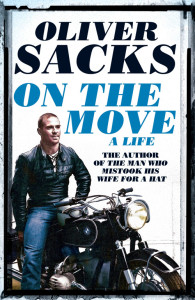 Gratitude is the last work we shall have from Oliver Sacks. It comprises four essays that were published in the closing years and months of his life. The first essay, Mercury, was written and published before Oliver Sacks discovered that he had a rare and difficult to treat form of melanoma. It celebrates old age, and the essay feels, in its way, soberly upbeat. It is an essay steeped in the love of living. Within its words reside the glimmering promise of good health and happiness for at least a few years to come. And yet there is a tension that Oliver Sacks never intended. As the reader, we know more than he did when writing it. We know that he will not live out the decade. We know that his body was already secretly betraying him to cancerous cells, even as he wrote about the joys of good health in old age.
Gratitude is the last work we shall have from Oliver Sacks. It comprises four essays that were published in the closing years and months of his life. The first essay, Mercury, was written and published before Oliver Sacks discovered that he had a rare and difficult to treat form of melanoma. It celebrates old age, and the essay feels, in its way, soberly upbeat. It is an essay steeped in the love of living. Within its words reside the glimmering promise of good health and happiness for at least a few years to come. And yet there is a tension that Oliver Sacks never intended. As the reader, we know more than he did when writing it. We know that he will not live out the decade. We know that his body was already secretly betraying him to cancerous cells, even as he wrote about the joys of good health in old age.
The subsequent three essays were written after the cancer diagnosis, and they are, as such, reflective on what it means to reach life’s end. But that said, all of these four essays are, none of them, depressing works. Oliver Sacks was always in his writing, a believer; a believer in human capacity to cope with strange twists of neurological fate; a believer in the ultimate goodness of human nature; a believer in others; a believer in himself. I don’t doubt that a person cannot always and constantly believe in the fundamental goodness of life: but I have to wonder if Oliver Sacks came as close as might be humanly possible? His written words seem so irrepressibly positive. And all this despite the fact that Sacks clearly found himself in times and places during his life where the evidence was stacked against there being any sort of fundamental goodness underlying our human existence.


